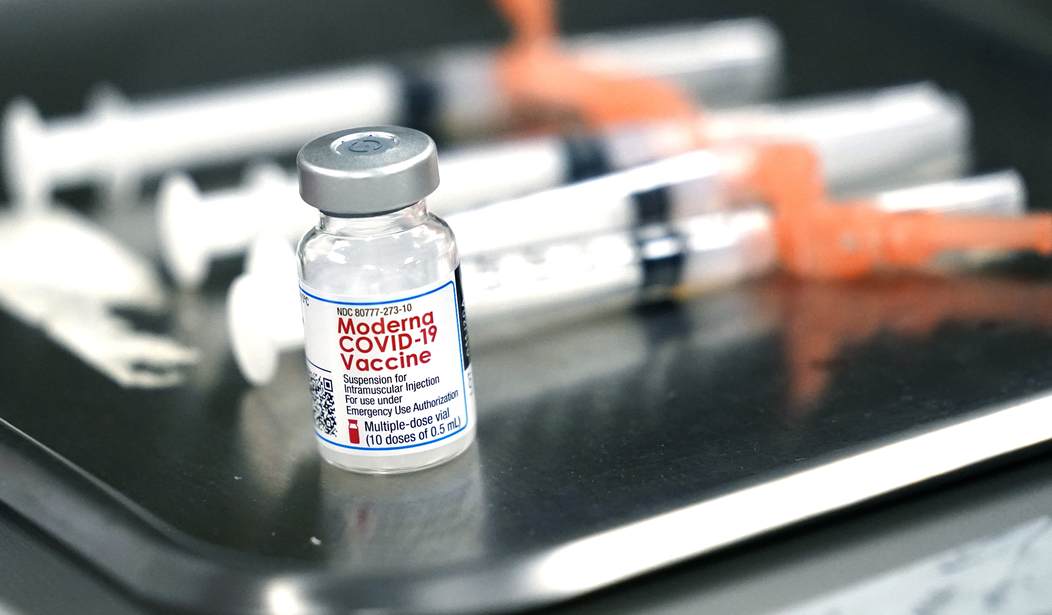On Tuesday, the Food and Drug Administration (FDA) and the Centers for Disease Control (CDC) recommended a pause in the distribution of the Johnson & Johnson COVID-19 vaccine after a minuscule percentage of patients who took the vaccine developed a rare blood clot. Of the roughly 6.8 million people who have taken the J&J vaccine, only 6 people have developed the blood clot, which requires different treatment than normal blood clots.
The FDA and the CDC acknowledged that their recommendation comes from “an abundance of caution,” but they still recommended a pause in the distribution.
“As of 4/12, 6.8m+ doses of the J&J vaccine have been administered in the U.S. CDC & FDA are reviewing data involving 6 reported U.S. cases of a rare & severe type of blood clot in individuals after receiving the vaccine,” the FDA announced on Twitter. “Right now, these adverse events appear to be extremely rare.”
As of 4/12, 6.8m+ doses of the J&J vaccine have been administered in the U.S. CDC & FDA are reviewing data involving 6 reported U.S. cases of a rare & severe type of blood clot in individuals after receiving the vaccine. Right now, these adverse events appear to be extremely rare
— U.S. FDA (@US_FDA) April 13, 2021
Recommended: Kamala Harris: Biden Admin ‘Started From Scratch’ on Vaccine Distribution. Fauci Begs to Differ
“Treatment of this specific type of blood clot is different from the treatment that might typically be administered,” the FDA explained.
The CDC’s Advisory Committee on Immunization Practices (ACIP) will meet on Wednesday to “review the cases and assess their potential significance.”
The connection between COVID-19 vaccines and this “rare and severe type of blood clot” is worrisome. As Megan Ranney, an emergency room doctor at Brown Emergency Medicine, noted, the blood clot in question — cerebral veinous sinus thrombosis plus low platelets — has also emerged in connection with the AstraZeneca COVID-19 vaccine.
Yet the blood clot issue in both cases is extremely rare. Six cases in 6.8 million amounts to a 0.000088 percent risk factor. As Ranney noted, even if the vaccine is causing this rare blot clot issue, the rate is so “TINY” that “it would never have been picked up by clinical trials” because “no trial involves millions” of people.
1. Reporting 6 cases of cerebral venous sinus thrombosis plus low platelets- the same complication observed w/ AstraZeneca – among 7 million doses administered.
**If real, it would never have been picked up by clinical trials. The rate is TINY. No trial involves millions of ppl.
— Megan Ranney MD MPH 🗽 (@meganranney) April 13, 2021
While the blood clot issue may be alarming, Ranney pointed out that “Science and medicine, like life, is full of weighing risks vs benefits.” As of now, she argued, the risk of catching COVID-19 and getting a bad complication is much higher than this very rare adverse effect. COVID-19 patients reportedly have approximately a 20 percent chance of getting a blood clot, although the rate may be lower. Even if the rate is 15 percent, that is multiple orders of magnitude more likely than the 0.000088 percent chance of developing this rare blood clot from the vaccine.
Even that calculus relies on the idea that the severe blood clot in question is a side effect of the vaccine. That claim has yet to be demonstrated. This could just involve correlation, rather than causation.
Recommended VIP: There’s No Stopping Vaccine Passports. Here’s Why.
The FDA and CDC are right to investigate the situation, but recommending a pause in the vaccine appears dangerous. What message does this send to the 6.8 million people who have already taken the vaccine?
Even if the CDC trial concludes that this rare and extreme blood clot is not a vaccine side effect but rather a fluke coincidence, the FDA’s move on Tuesday will undermine the public’s trust in COVID-19 vaccines. This is a lose-lose proposition.









Join the conversation as a VIP Member